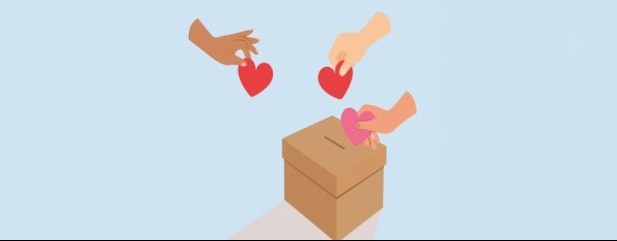Archived article
Please note that tax, investment, pension and ISA rules can change and the information and any views contained in this article may now be inaccurate.
Giving to charity? Don’t miss the tax boost

Lots of people gift money to charity every year, but many aren’t aware there are big tax breaks for doing so.
Research commissioned by HMRC showed that although 94% of higher earners donating to charity had heard about gift aid, only 52% were aware they could claim a tax rebate on their donations. Staggeringly, just one in five higher and additional rate taxpayers had claimed a rebate which goes some way to account for the estimated value of unclaimed gift aid exceeding £500 million.
We’ll cover how gift aid works and the other tax perks of donating to charity.
HOW GIFT AID WORKS
Gift aid is a tax incentive that gives a top up on donations from UK taxpayers to a UK registered charity or community amateur sports clubs (CASC). The government tops up the charity donation by 25% – equivalent to the 20% basic rate income tax paid on the money donated. This turns a £100 donation before the £25 top up into £125 for the charity or CASC.
But there’s a tax break on offer for higher and additional rate taxpayers too – they can claim up to 20% or 25% on their donations, depending on their tax bracket. That means an additional rate taxpayer making a £100 donation could reclaim £31.20 from the taxman – meaning the effective cost of the donation is just £68.80. On top of that, the charity would receive £125 after claiming its Gift Aid on the donation. For a higher-rate taxpayer the cost is £75 of the £125 that the charity receives.
Claims are usually made via a self-assessment tax return, but you can ask HMRC for a P810 form to fill in if you don’t normally file a return. You can backdate claims for up to four years, so it’s worth looking into this before the end of the tax year in April. Getting the claim in now means you might be able to make a bigger claim.
Another handy tip is that you can claim a rebate ‘in-year’. Self-assessment tax returns normally look back over payments and expenses for the previous tax year. But gift aid rules mean that you can use it to claim a rebate for donations made in the current year too, up until the date you file your return, meaning you could get your gift aid rebate sooner.
YOU CAN AVOID TAX TRAPS TOO
Not only does giving money to charity give you a good feeling and some tax relief, but there are also other ways you can use charitable gifting to boost your tax position. If you’re caught by one of the many traps in our tax system, gift aid could help you lower your tax bill.
You might be a parent who has gone over the £50,000 child benefit high income charge, meaning you’d start to lose child benefit. Or if your earnings have breached £100,000 you start to lose your tax-free Personal Allowance at a rate of £1 for every £2, a whopping effective rate of tax of 60% on earnings between £100,000 and £125,240. At this level of earnings, you also lose entitlement to tax-free childcare and some funded childcare hours, which can cost you a lot of money.
Making a charitable donation and claiming gift aid means the full value of the donation (what you pay plus the government top up) is deducted from the income that would otherwise count towards the £100,000 limit (or £50,000 for child benefit).
For example, if you earn £101,250 you could make a £1,000 donation to charity. This would then be increased through gift aid to £1,250 for the charity. But that full £1,250 donation can be offset against your income to bring it down to £100,000 – meaning you aren’t subject to the taper and nor do you lose certain childcare benefits.
You can achieve a similar tax planning outcome by making a pension contribution towards your retirement too.
Missed out on a rebate?
With charity donations at record levels and frozen tax bands dragging more people into higher rates of tax, it’s likely the unclaimed gift aid figure is even greater than the £500 million figure suggested in 2016. If you’ve got records of your donations, you could make claims going back up to four years. Contact HMRC to sort this, via webchat, phone or post.
Important information:
These articles are provided by Shares magazine which is published by AJ Bell Media, a part of AJ Bell. Shares is not written by AJ Bell.
Shares is provided for your general information and use and is not a personal recommendation to invest. It is not intended to be relied upon by you in making or not making any investment decisions. The investments referred to in these articles will not be suitable for all investors. If in doubt please seek appropriate independent financial advice.
Investors acting on the information in these articles do so at their own risk and AJ Bell Media and its staff do not accept liability for losses suffered by investors as a result of their investment decisions.
Issue contents
Editor's View
Feature
Great Ideas
News
- Indivior enjoys a strong recovery as it targets primary US listing
- Halfords skids lower on weak demand and wet weather woe
- Is Adobe primed for an upside surprise?
- Competitive pressures are piling up for Pets at Home
- Will the Reddit initial public offering live up to investors’ hopes?
- Budget 2024: British ISA launched, booze duty freeze lifts pub stocks
 magazine
magazine








